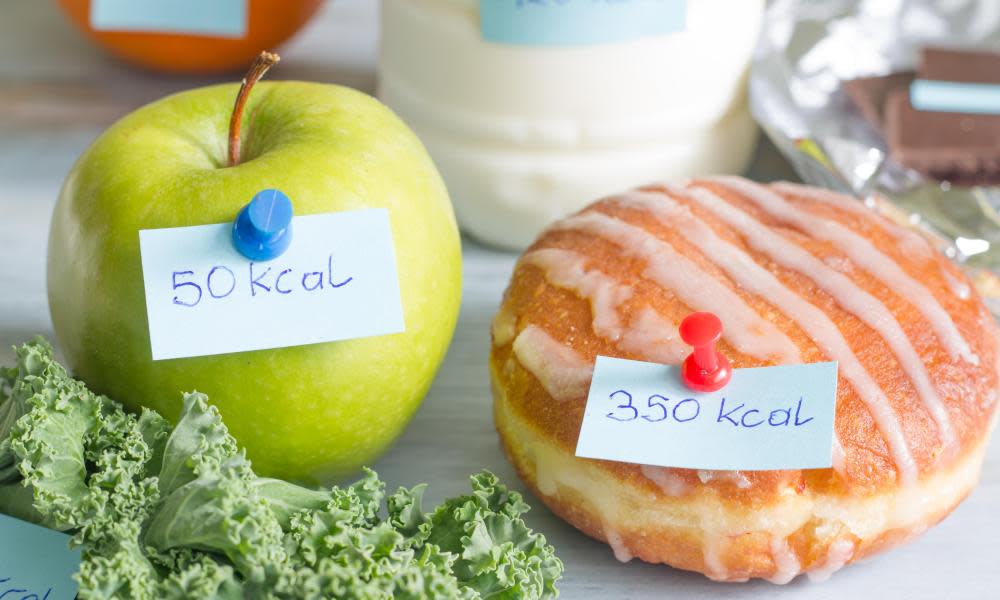Weighing up how calorie counting affects health

Weight control is not the same as calorie counting. Amelia Tait (After years of torture, I broke free of the tyranny of calorie counting, 8 August) suffered from anorexia and, for people with that condition, calorie counting is different from normal weight control.
Having been anorectic, it is probably difficult to get out of the habit. Although there are many (fortunate) people who do not have to control their weight at all and never gain weight, there are others (nearly half the population of the Netherlands, according to recent research) who are chronic dieters or, as eating researchers refer to them, “restrained eaters”.
The sight or smell of tasty food stimulates their appetite and even though they try to control their weight, they often overeat. They face the problem that if they do not watch their weight, they put it on. And whereas gaining weight is easy, losing it again is difficult.
The body defends itself against weight loss (any weight loss, not a specific weight or “set point”) by reducing metabolic processes. However, controlling your weight does not mean that you have to count calories. In fact, restrained eaters typically have only vague ideas about the calories contained in food items.
To control your weight, you only need to have a rough idea about which foods have loads of calories and which are less calorific. It also pays to step on the scales at least once a week and take countermeasures if one has gained weight. And finally, exercising (even just walking or cycling) is not only good for keeping weight off, it is also (next to not smoking) the best thing you can do for your health.
Prof Wolfgang Stroebe
University of Groningen
• Having become overweight and moving toward diabetes for some years, I have found calorie counting to be a very useful tool in being more healthy. I have lost three stone in weight, enjoy exercise more, and feel really good within. Counting calories has enabled me to understand the effects of different types of foods and allowed me to incorporate treats into a diet with more fruit, vegetables, fish and so on. It works for me. It has enabled me to see a healthier way forward for myself.
Simon Cooper
Appleton Wiske, North Yorkshire
• If you want to lose weight, you need to know how many calories you are consuming. It’s no good guessing or hoping for the best. Most dieters underestimate how much they’re eating and it can be quite a shock to discover just how fattening some foods are. I’ve lost over four stone in a year and wouldn’t have been able to if I hadn’t carefully studied and counted calories. Some of us cannot eat whatever we want. Counting calories is well worth it if it means a longer, healthier, life.
Laura Marcus
Leek, Staffordshire
• Amelia Tait’s excellent piece resonates with me very strongly as someone who became obsessed with calorie counting as a child. I began to purposely not finish meals by the time I was 10 and began to count calories at age 12. Due to my autism spectrum disorder, it quickly became an unhealthy compulsion which led to binge eating. There’s a lot of misunderstanding of how easily a simple piece of dieting advice can spiral into disordered eating. Even now, at nearly 20 years old, I struggle with disordered eating, but I now try not to look at calories any more.
David Chan
Belper, Derbyshire
• I too was trapped in the cycle of calorie counting, diets and slimming clubs – from childhood. It was not until the pandemic that, ironically as we were locked down, I allowed myself to follow my instincts of what and how I wanted to eat. I lost weight and it stayed off. It is diets that keep you fat, as most dieters know. Eat as healthily as you can, and move as much as possible!
Avril Levi
London
• Have an opinion on anything you’ve read in the Guardian today? Please email us your letter and it will be considered for publication.


